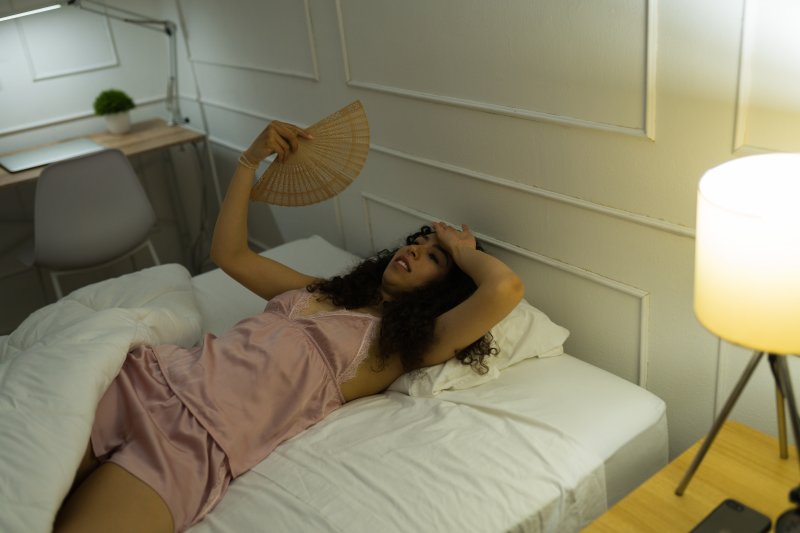
Do you sweat throughout the night? Do you keep your thermostat turned up while sleeping? If you answered “yes,” you may find that your sleep apnea symptoms are worsening because of the heat. Believe it or not, the temperature in your room can make a significant difference in your quality of rest each night, so if you want to snooze soundly with little or no interruptions, read on to find out how to ensure your sleeping environment is set up for success.
The Battle Between Hot & Cold: The Temperature & Your Sleep
No matter what kind of climate you live in, the temperature you set within your home can have a positive or negative impact on your quality of sleep.
It is believed that the higher you set your thermostat, the greater your chances of being unable to enter into a deeper, more relaxed stage of rest.
The body temperature fluctuates when attempting to fall asleep, so as it becomes cooler, you can begin to experience a more comfortable state, allowing you to fully embrace each stage of sleep. However, when the room you’re in is too hot, your body may be unable to successfully cool down, making it harder to fall asleep as well as experience interruptions throughout the night.
What is the Perfect Environment for Sleep?
While this answer may be different for everyone, it is recommended that to obtain the quality rest most people need, the room should:
- Remain cool, which means setting the thermostat to a lower temperature (between 65 and 68 degrees).
- Remain dark, which can be achievable by installing blackout curtains to shield any outside light from filtering in when the sun comes up. If you can’t get these, make sure to keep your shades or curtains closed to limit sunlight.
- Stay hydrated throughout the day by drinking cool water.
- Choose loose-fitted and light clothing when going to bed, as this will prevent heat from accumulating.
- Keep your bedding light by removing all the heavy blankets and comforters.
- Avoid exercising before going to bed, as this causes your heart rate to increase. Your body temperature will be much higher, making it harder for it to cool down.
- Sleep in your own bed instead of sharing it with someone else, as this can create additional heat.
- Limit all alcohol before bed, as this will cause you to lose water because of frequent urination. Dehydration can lead to increased heat production. Also, stay away from heavy meals; instead, eat at least 3-4 hours before going to bed.
Turn off the heat if you want to get better sleep each night. By making a few simple adjustments to your bedroom and habits, you can expect to remain comfortable while getting adequate rest for the next day.
About the Practice
At Star Sleep & Wellness in Frisco, our team of sleep experts and specialists are well-versed in creating healthy, sleep-positive environments. Although we provide effective sleep apnea treatment (i.e., CPAPs, oral appliances, etc.), we also provide helpful tips and recommendations that are known to improve nightly rest. If you need ideas to make your bedroom more comfortable, contact us to schedule an appointment or speak to a member of our team.
